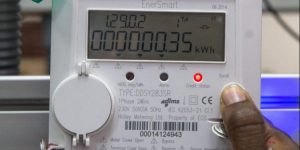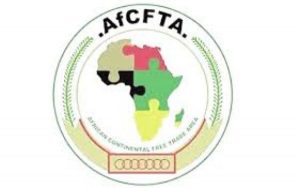The Ministry of Trade and Industry has stated that it is taking the necessary steps to help increase the stock of various made in Ghana goods on the shelves of supermarkets in the country.
This follows a recent survey by an international business advisory firm, Konfidants which revealed that only 26 percent of goods sold in Ghanaian supermarkets are made in Ghana.
These results were reached after the research firm surveyed nine of the leading supermarkets and two fuel stations in Accra.
Reacting to this, the Public Relations Officer of the Ministry of Trade and Industry, Price Boakye, stated that supermarkets could not be compelled to sell made in Ghana goods but rather encouraged to do so even as the Ministry and other stakeholders were helping to improve the quality of local goods in order to appeal to supermarkets.
He stressed, “Through the One District, One Factory project we are ensuring that every product that comes out of the project has been duly certified by the Ghana Standards Authority just to ensure that they are fit for purpose in terms of quality and standards. For this reason, some of the supermarkets will be assured that these are quality products that they can stock in their supermarkets.”
“Most of these supermarkets are privately owned. For which reason, nobody through whatever law can compel a private entity to stock made in Ghana products. What we can do is to engage them and get them to appreciate the quality of the local goods.”
According to Konfidants, the result is an improvement as compared to the 2019 survey when only 18 percent of goods surveyed were Ghanaian products.
However, despite a huge growth in the number of multinational supermarkets in the last decade in the country, the invasion is yet to be translated into an avenue for local manufacturers to make money.
They have asked policymakers and key stakeholders to review the shelf presence of made-in-Ghana goods.
On their part, the Director of Communications at Melcom Group of Companies, Godwin Avenogbo spoke about how easy or difficult it is for local producers to get their products on the shelves of supermarkets.
“The FDA must approve the product you want to sell at Melcom. If you don’t have that, we can’t afford to sell any local product here. So documentation to us is very critical. The goods we sell here must be high-quality products. So we are not going to say that because it’s made in Ghana, we accept just anything. Entry is difficult but if you meet the requirements, it’s very rest easy.”







